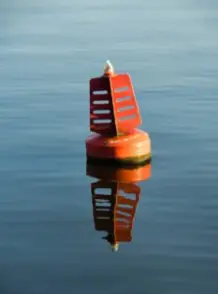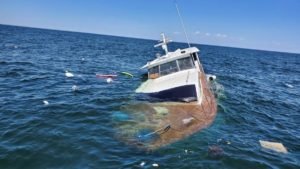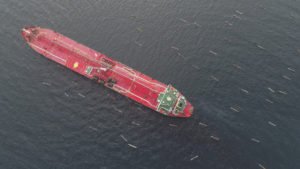
You can file an unseaworthiness claim up to three years after you suffered an injury or illness while working aboard an ocean-going vessel with hazardous conditions, according to 46 U.S. Code §30106. Filing an unseaworthiness claim may allow you to secure a payout for the damages you suffered because of your injuries.
If a vessel is unsafe, it can cause seamen and sailors working on it to suffer injuries. A ship could be dangerous because of the vessel’s condition, the working conditions, the tools or equipment, and other factors.
Filing an Unseaworthiness Claim
When a worker is injured in waters off the U.S. or at a U.S. port, they are not covered by the same types of workers’ compensation laws applicable to other workers in nearby states. Instead, maritime law applies. This could mean filing an unseaworthiness claim, a Jones Act claim, or pursuing compensation under another maritime law.
Laborde Earles injury was great for me they took care of me very fast and professional. If for any reason I need legal help they will be who I use.
ClientWhen is a Vessel Unseaworthy?
Seamen have used the doctrine of unseaworthiness to secure compensation for their offshore injuries for decades.
Under maritime law, a ship is unseaworthy when there is a problem with its structure, equipment, personnel, or another facet of its operation that causes seamen to suffer injuries or other harm. If a problem with the boat’s conditions prevents the workers from performing their specific duties or the ship from functioning as intended, it may be unseaworthy. To be seaworthy, a boat’s owner must ensure their vessel:
- Does not have unreasonable problems with its hull, structure, or systems
- Can perform its purpose as intended
- Has safe equipment and the right tools for each job
- Provides safe work conditions, including all required safety devices and personal protective equipment
- Provides enough life-saving equipment for all onboard
- Is fully staffed with a crew
- Has a competent crew to manage the required work and any emergency conditions
Any inadequacy in any of these could support an unseaworthiness claim if it caused or allowed an injury to occur.
I thank God for Digger & David. I don’t know what we would have done if it hadn’t have been for them.
Rick Smith | ClientThe Boat’s Owner is Strictly Liable for the Vessel’s Seaworthiness
You can file an unseaworthiness claim against a ship’s owner if you believe there was a problem with the boat, crew, or equipment. The owner of a vessel has a non-delegable duty to maintain and oversee their ship and ensure all seamen on board have a safe working environment.
Because of this legal duty, you will not need to prove the owner knew about the condition that led to your accident or prove that they acted negligently in any other way. If you can show that an unseaworthy condition caused your injuries, you may be able to win your case.
For example, imagine that you fell when working aloft without the proper harness. The ship was missing the right equipment as required for the job you were doing. The boat’s owner would be accountable if you could show:
- The proper equipment was missing, and management offered a poor substitute instead
- The proper equipment could have prevented your fall
You do not have to show that the shipowner intentionally put your life in danger.
The reassurance from Digger and his staff gave me that renewed hope that it’s going to be okay down the road.
ClientUnderstanding Legal Action Based on Maritime Law After an Injury
In many cases, seamen and sailors who have a valid unseaworthiness claim may also have a viable Jones Act case. Per 46 U.S. Code §30104, qualifying seamen can also hold their employer responsible following an injury at sea.
Unlike the doctrine of unseaworthiness, though, the Jones Act requires you to prove the employer, a fellow employee, or another party acted negligently, causing your on-the-job injuries.
You might want to work with a lawyer from our firm who can sort out your options and pursue your case on your behalf. Maritime and admiralty law can be complex and confusing, so enlisting the help of an attorney from our team familiar with cases like yours can be helpful.
They treated us like no other people would. Whenever we needed something they were there for us. I put my trust in them and I don’t regret it.
ClientGet a Free Consultation With an Attorney on Our Maritime Law Team Today
You can speak to a Laborde Earles Injury Lawyers team member for free today. If you suffered injuries while working as a seaman on an ocean-going vessel in open water or a U.S. port, you have options for pursuing damages. We can develop a case for you based on the Jones Act, the doctrine of unseaworthiness, or other maritime laws, and help you fight for compensation for your losses.
Call (337) 777-7777 for your free review of your case today. There is no obligation to take action after your consultation or to work with our team. If we decide to work together, we will represent you on a contingency fee basis.




